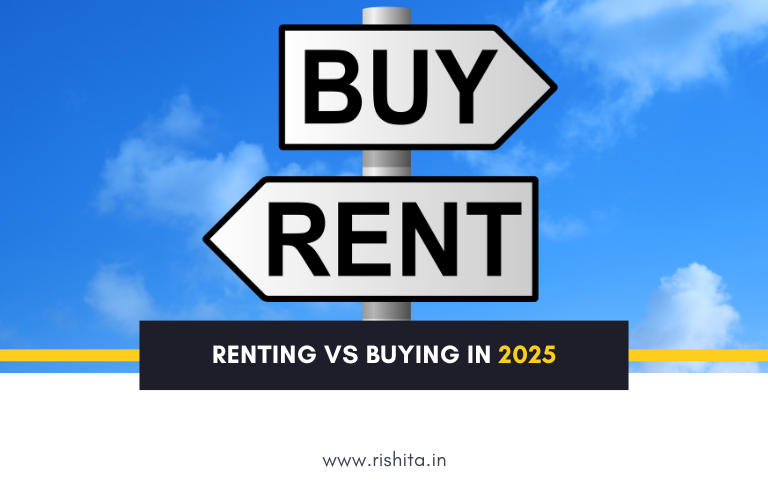Renting vs. Buying: Which Makes More Sense in 2025?
- Jeana Beech
- Aug 20, 2025
- 3 min read

As we navigate the housing market of 2025, many buyers and renters face a tough question: Is it smarter to rent or to buy? The answer depends on your financial situation, local market, and long-term goals. Here's a comprehensive guide to help you—and your audience—decide.
1. Cost Comparison: Renting Often Wins in 2025
According to Bankrate, average mortgage payments—including principal, taxes, and insurance—are approximately 38% higher per month than renting in all 50 major U.S. metros. The gap grew in 38 of those metros over the past year. New York Post+13Bankrate+13trymasterkey.com+13
A financial advisor’s example shows that owning a $430,000 home could cost nearly $2,950/month, while renting a similar space would be around $2,550/month—with the break-even point not reached until around the 6–year mark. Investopedia
Realtor.com reports that renting is cheaper than buying in 48 out of 50 major metros; exceptions include Detroit and Pittsburgh where owning makes more financial sense. The Guardian+15Investopedia+15Bankrate+15
2. Regional Variations: Location Matters
SmartAsset shows homeownership costs can be nearly double renting in some cities like Newark, NJ or Oakland, CA, while in others (e.g., Surprise, AZ or Palm Bay, FL), owning may actually cost less. smartasset.com
Construction Coverage confirms that as of early 2025, average mortgage costs are about 21% higher than rent nationwide. However, in lower-cost regions and parts of the Rust Belt—e.g., Detroit, Cleveland, Philadelphia—owning can be competitive or even less expensive. Bankrate+4Construction Coverage+4New York Post+4
A NY Post report highlights that in cities like Detroit and Cleveland, homeowners spend a relatively low share of income on housing, making buying more favorable in those markets. New York Post
3. Renting’s Rising Appeal
A growing number of seniors are choosing renting for flexibility, especially in active adult communities with amenities—but also younger adults continue to favor renting. Axios+2Axios+2
Suburbs are increasingly becoming rental hubs, with mortgage payments outpacing rents by hundreds monthly. Homeownership costs exceed rents by $700 per month in many areas due to high home values and mortgage rates. Business Insider
Despite the current rental advantage, analysts predict rents will increase steadily in coming years—home values may even dip slightly, shifting the rent-buy balance. Axios+15barrons.com+15nerdwallet.com+15
4. Tools to Help Decide
Rent vs. Buy calculators (like those from NerdWallet, Masterkey, or Affordably.ai) let users compare scenarios based on rent, mortgage, taxes, depreciation, and opportunity cost of upfront cash. Many show the break-even point happens after 3–6 years. nerdwallet.com+2trymasterkey.com+2
Summary: When Renting Makes Sense — And When Buying Might
Scenario | Renting is Better If... | Buying Might Be Better If... |
Short-term or uncertain stay | You plan to move <5 years or value flexibility | You expect to stay ≥6 years |
High-cost metro area | Monthly ownership cost significantly exceeds rent | You’re in an affordable market (e.g., Rust Belt) |
Tight budget | You lack down payment savings or prefer liquidity | You have savings, can manage upfront costs |
Market trends | Renting is currently cheaper across many markets | Certain local markets favor buying long-term |
Final Thoughts
In 2025, renting emerges as the more financially prudent option in most U.S. metro areas—especially where homeownership is burdened by high mortgage payments, taxes, and maintenance costs. But that doesn’t mean buying isn’t smart. If you're in a more affordable city or plan to stay long-term—and can handle upfront expenses—buying may still win in the end.




Comments